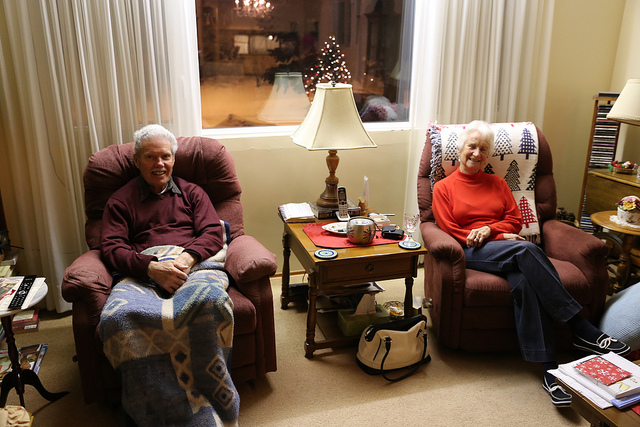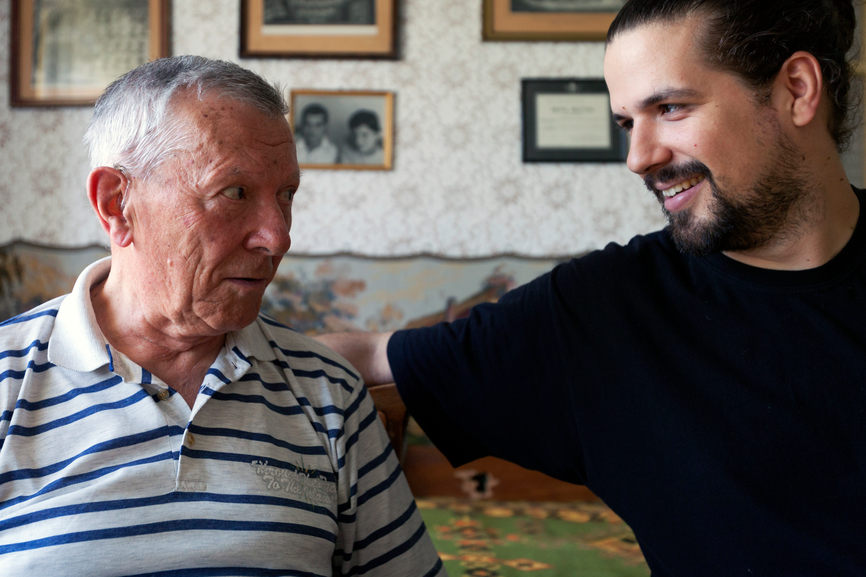How to Talk to Your Parents If You're Worried About Their Health

By:
For some, the holiday season means visiting family for the first time all year. According to expert geriatricians like Dr. Leslie Kernisan, these reunions can reveal just how much an aging parent or relative has changed over the past months, which may prompt a difficult conversation about their health.
 Mack Male / Flickr - flic.kr
Mack Male / Flickr - flic.kr
First, it’s important to know this conversation shouldn’t happen just once; it’s actually an ongoing, gradual one. “Unless there’s a bad crisis afoot,” Kernisan writes on her blog, Better Health While Aging, “you want to make sure you keep chipping away at things.”
Unfortunately, older adults tend to be in denial of their situation or limitation. In an email to ATTN:, Kernisan explained, “It's just the human tendency to resist information that alarms us or creates conflicts with our identity and sense of self.”
That’s why it’s best to start with what Tami Cumings, a former senior vice president at A Place for Mom, describes as an impromptu face-to-face. In a 2012 interview with NPR’s Michael Martin, Cumings cautioned against planning tough exchanges in advance. Instead of saying, “We want to have that conversation when we come to see you,” it’s often easier to casually sit down with an aging family member, especially during the holidays.
Keeping it general might make parents feel like it’s not about them.
Cumings explained via an email to ATTN: that one way to broach the subject is talking about the illness of an aging family member or friend. Through this discussion, an adult child could express that they want to hear their parents’ concerns and, ultimately, be prepared to respect their wishes. “They might just ask,” Cumings wrote, “what would be most important to them if they had to move away from their home.”
 Stocksy - stocksy.com
Stocksy - stocksy.com
In her NPR interview, Cumings also stresses the need for communication amongst siblings. In other words, it’s critical to include everyone in the decision-making process. After the initial conversation with an aging parent, siblings might disagree on the next step. Cumings, who’s now an executive at US Memory Care, which operates assisted living communities for people with Alzheimer’s, said the solution is sometimes as simple as a conference call. Instead of just talking to one member of a family, advisers at US Memory Care facilitate conversations in which everyone can hear the options and voice their concerns.
While these conversations are great opportunities to bring up difficult topics like assisted living, doing research ahead of time is also a vital part of the process. On her blog, Kernisan advises adult children read about their parents’ health conditions to better understand current or potential problems. Additionally, as emphasized by the Benjamin Rose Institute of Aging, it’s critical to go into any discussion with knowledge of local healthcare options and living arrangements.
“Honestly,” Kernisan admitted in her email, “I think it's incredibly difficult for most families to navigate these conversations successfully.” That’s why both Kernisan and Cumings encourage adult children to seek out experienced facilitators. Though finding a suitable person at a reasonable cost can be difficult, communication is essential to ensuring a parent’s safety and quality of life.
